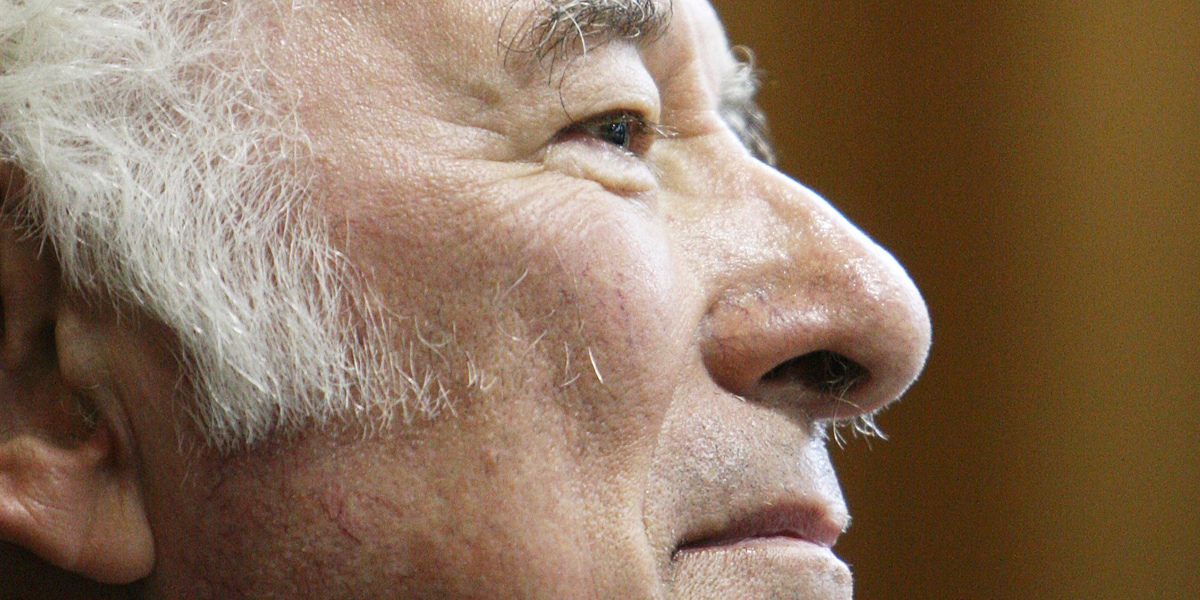I attended St Joseph’s Training College in Belfast in the early 1960s (then known as the Ranch). One of our English lecturers was Seamus Heaney. After graduating from Queen’s University he taught briefly in St Thomas’ Secondary School. The headmaster was the acclaimed short story writer Michael McLaverty who encouraged his writing.
He was appointed to St Joseph’s Training College in 1963 where he lectured for three years before moving to Queen’s University. I remember one lecture before our final teaching practice. He told us to concentrate on creative writing rather than composition. Composition was then the standard format in primary schools. Topics might have included ‘How To Boil An Egg’ or ‘How To Fix A Puncture’. The ‘Master’ would go through the stages of the process, writing key words on the blackboard and after going through the steps of the process three or four times the pupils would then write the composition. In most cases this was an imaginary story as the majority of them would never have cooked an egg or anything else.
Seamus encouraged us to engage the pupils in conversation about mundane topics and encourage them to write about real life experiences. One example he gave us was a typical Irish home before Mass on a Sunday morning when everyone wanted to use the bathroom at the same time but the teenage daughter was locked in, busily engaged in applying make-up and raining on everyone’s parade.
The final teaching practice was in the home parish so I was in An Port Mór ( Blackwater) home of the composer of The Boys From the County Armagh.
About three weeks into my teaching practice Seamus arrived at my school to assess me. While I took a mathematics lesson he read through my lesson notes and observed that I had written up the creative writing lesson as above. He decided to take the lesson and I learned more in half an hour than in three years in the college. He had the boys mesmerised. He seized on the fact that half the class were from Tyrone and the others from Armagh. Rivalry in Gaelic football between these counties was very intense then.
He loved the school. It was a hundred years old with an open fire and outside toilets. There was an infant school for junior and senior infants. After that boys and girls were segregated. The boys’ and girls’ schools were separate entities on opposite sides of the road.
The secondary intermediate schools had yet to be built and the school catered for boys from the age of five to 14 years of age. The senior room contained forms and benches and as the children did their writing he did his using a simple pen and homemade ink. Each boy read out his work which Seamus praised. He left with the boys’ literary efforts and a supply of pen holders, nibs and ink powder. He told us the school was exactly like the one he attended. This was Anahorish on the banks of the Bann where the pupils came from two different counties, Antrim and Derry, and three different dioceses, Down and Connor, Derry and Armagh. This meant that the P7 teacher had to attend three different confirmation ceremonies each year.
He asked them to sing for him. One of the older boys played a couple of tunes for him on the bagpipes and he recited a few of his poems, Digging, Trout and The Diviner – topics with which the boys could readily relate. Some of his poems had been published in The Irish Times, Dublin Review etc but his first collection of poems, Death of a Naturalist, was then being prepared and was published the following year. Lecturers usually moved on after 45 minutes. Seamus arrived shortly after 10am and stayed with us until the end of the school day.
I met him often in the ’70s in Donegal. He was a regular in Nancy’s Back Kitchen in Ardara, usually in the company of writer and humanist John D Stewart and he always came over to say hello and to ask about Blackwater.
I have always loved his poetry. While most of his early work reflects life on the farm and the rural community of South Derry, one stands out for me as it portrays the character and divisions that existed in Belfast in the 1960s.
Docker
There in the corner, staring at his drink.
The cap juts like a gantry’s crossbeam,
Cowling plated forehead and sledgehead jaw,
Speech is clamped in the lips’ vice.
That fist would drop a
hammer on a Catholic –
Oh yes, that kind of thing could start again;
The only Roman collar he
tolerates
Smiles all around his sleek pint of porter.
Mosaic imperatives bang home like rivets;
God is a foreman with
certain definite views
Who orders life in shifts of work and leisure.
He sits, strong and blunt as a Celtic cross,
Clearly used to silence and an armchair:
Tonight the wife and children will be quiet
At slammed door and
smoker’s cough in the hall.






